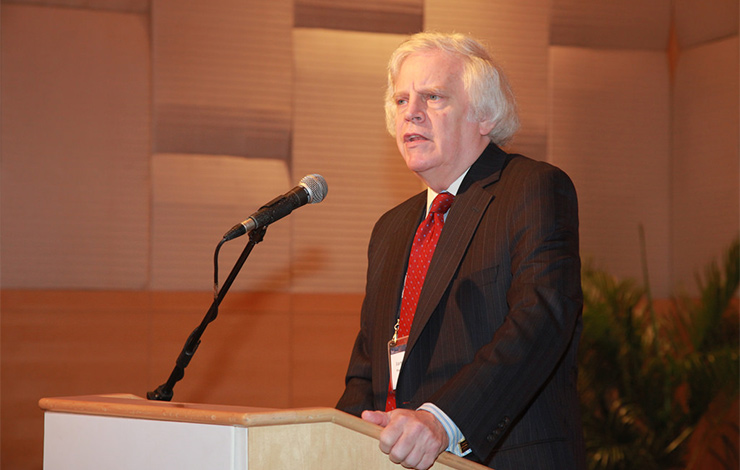

“The WJP Rule of Law Index is a key contribution to the knowledge trust within the rule of law and economic fields.” – Scott Fulton, Beveridge & Diamond, P.C., DC, Visiting Scholar, Environmental Law Institute, Adjunct Professor, George Washington University School of Law
On April 8th, the American Bar Association Section of Environment, Energy, and Resources World Justice Task Force (SEER) convened a multidisciplinary panel of experts to discuss the intersections of rule of law and sustainable development.
ABA President Jim Silkenat, Vice President of the WJP, delivered opening remarks illustrating current discourse on environmental rule of law, and initiatives the ABA is leading and supporting to strengthen legal frameworks at both the national and international level. Mr. Silkenat highlighted the WJP Rule of Law Index specifically, saying, "When we measure and diagnose the rule of law with tools like the [Index], we change behavior, approaches, and ultimately the law itself."
Participants Juan Carlos Botero (Executive Director, WJP), Martha Rees (Asst. General Counsel, E.I. du Pont de Nemours and Company), Steve Wolfson (Attorney, Office of General Counsel, International Law Practice Group, EPA) Corinna Gilfillan (Director, Global Witness), and Lalanath de Silva (Director, The Access Initiative) each brought their expertise to bear in addressing the foundation, measurement, and implementation of environmental rule of law initiatives, as to meet international sustainable development goals and principles. Scott Fulton, former General-Counsel of the EPA and visiting scholar at the Environmental Law Institute, led discussants as moderator.
In his comments, Dr. Botero stressed the importance of environmental measurement and benchmarking, and practical application of data towards strengthening environmental rule of law. Two main questions arise in the formulation of measurable standards. First, how to establish universal norms regarding environmental justice and dispute processes, and second, how to measure those standards as applied in practice. The WJP Rule of Law Index accomplishes the second by using general population and expert polling to measure the rule of law as it is experienced by the people, not the laws on the books.
Conversation amongst the other discussants flowed from the need for effective and transparent regulatory bodies, to the desperate human rights situation many climate activists around the world face as part of securing clean resources and property rights through weak institutions and unscrupulous businesses.
Environmental rule of law, though nascent in its ability to be measured, is a critical challenge facing civil society and governments around the world, incorporating issues of security, fundamental rights, and civil justice. As Mr. de Silva concluded at the end of the meeting, without clearly publicized information, access to regulatory policies, and a responsive judicial system, the rule of law—and therefore environmental justice—means nothing to the average citizen.
See event agenda.
Watch the full event here.






